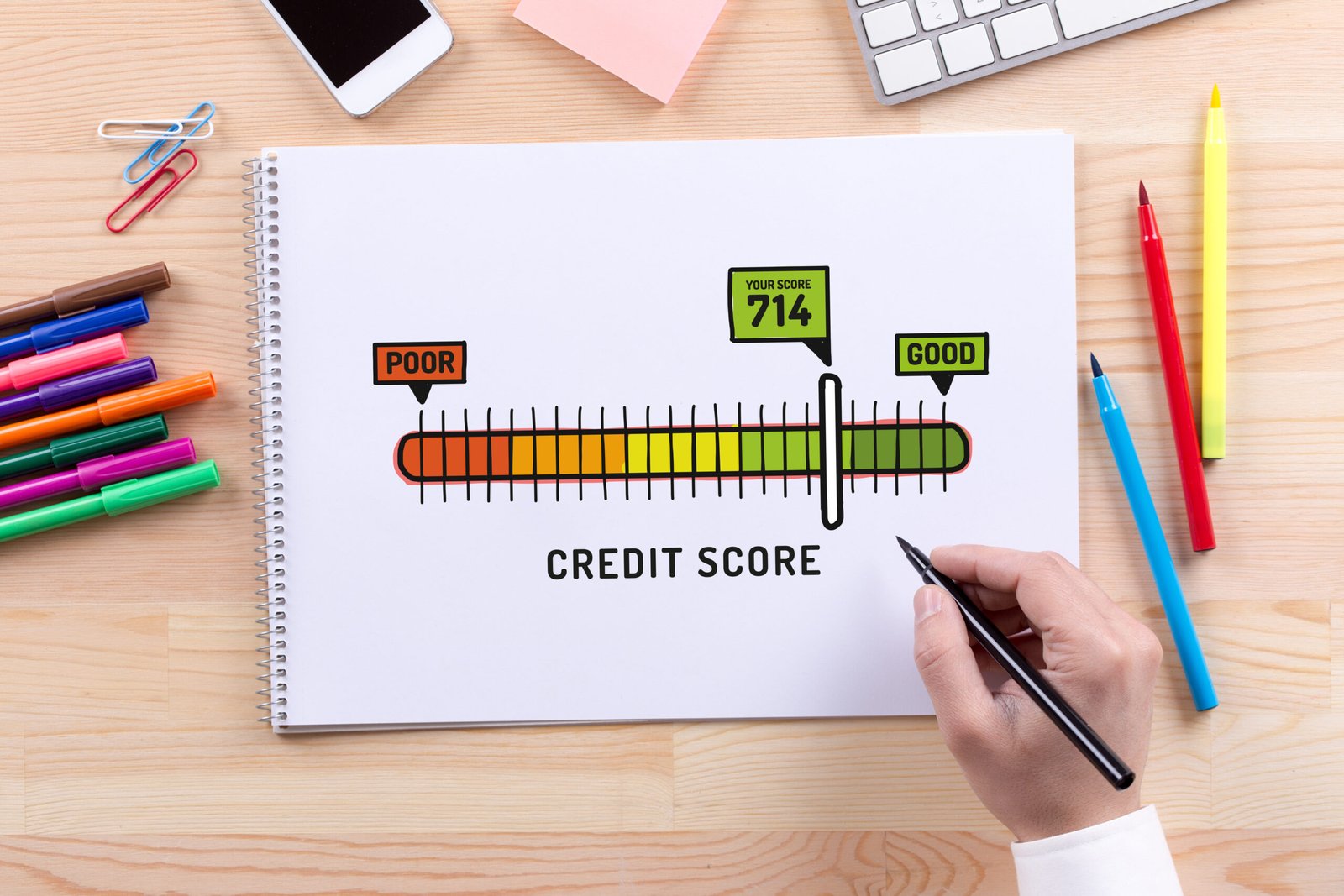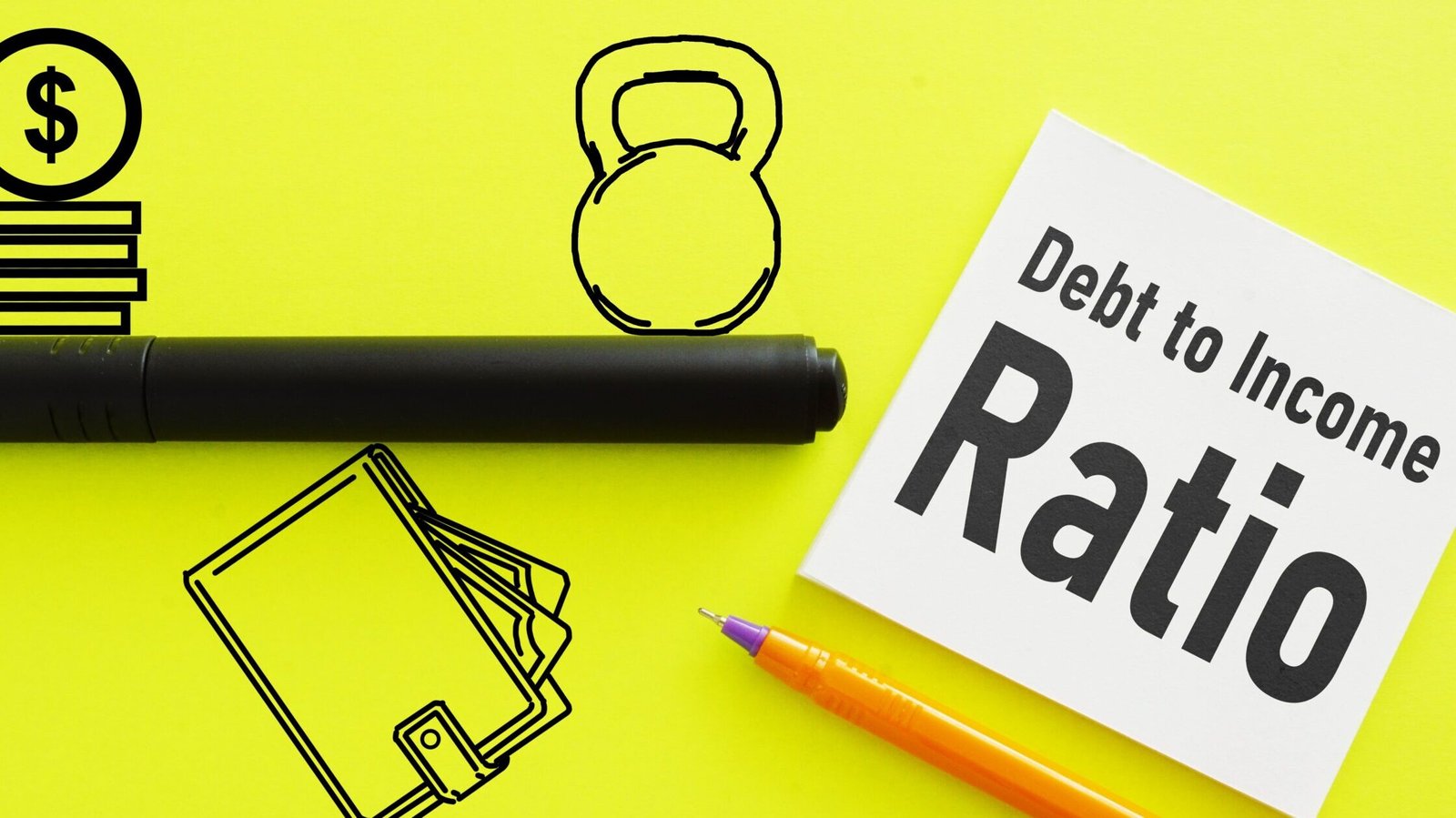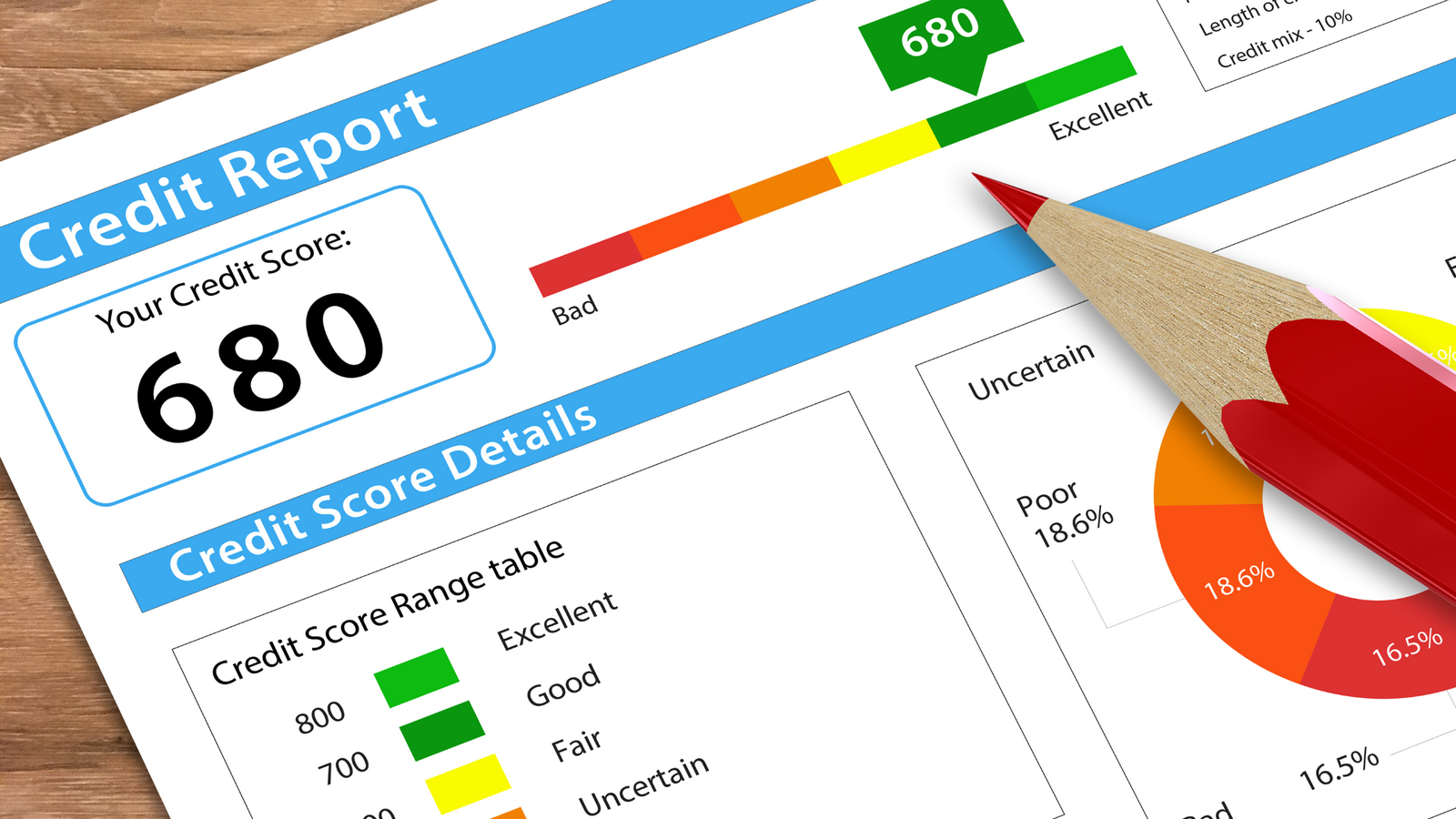If you ever need to borrow money – for a mortgage, a car loan, or even a credit card – the lender will check your credit score to determine if they should agree to lend you money or extend a line of credit. This three-digit number is used to predict how likely you are to repay a loan and is a key factor in determining whether or not you’ll be approved for financing.
A high credit score will always give you a better chance of being approved for a loan with favorable terms, including a lower interest rate. Let’s learn more about a good credit score and how it can make your life easier.
What Is a Good Credit Score?
A credit score is a three-digit numerical number that represents your creditworthiness – the higher your score, the better. Credit scores usually range from 300 to 850. Let’s break down the different types of credit scores you might see:
- 300-579: Poor
- 580-669: Fair
- 670-739: Good
- 740-799: Very good
- 800-850: Excellent
As you can see, a “good” credit score is anything from 670-739. But what does that mean?
When your score is in the “good” range, you are in the middle of the pack. It’s likely you’ll be approved for loans and credit cards, but you might not get the best interest rates. To qualify for the best rates you have to learn how to achieve a “very good” or “excellent” credit score.
The Importance of a Good Credit Score
Now that we’ve defined the credit score rating categories, let’s discuss why a high credit score is so important to have.
1. Easy Approval For Loans
Whether it’s a regular credit card, car loan, or mortgage, a high credit score will always give you an upper hand while applying for any kind of loan. If you have a poor credit score, there’s a chance your loan application might get rejected or you might end up paying a higher interest rate.
2. Lower Interest Rates
Getting a lower interest rate is probably the most common reason people strive to achieve a good credit score. A lower interest rate means you have to pay less money in the long run. For example, let’s say you take out a $10,000 loan with a 5% interest rate. Over five years, you would end up paying $1,250 in interest. If your interest rate was 10%, you would end up paying $2,500 in interest – that’s double the money, just because of a low credit score!
3. Better Terms on Loans
A better term means you are in the driver’s seat to negotiate. For example, if you’re getting a car loan and have good credit, the dealer might be willing to give you a lower interest rate or throw in some extra perks, like free maintenance. You might also get a fixed-rate loan instead of an adjustable-rate loan, which can save you a lot of money down the road.
4. Better Opportunities
Most people don’t know this, but your credit score matters when it comes to getting a job. Many employers pull credit reports as part of a background check process before offering you the job. If you have a good credit score, it will show that you are responsible and can be trusted with handling money. You might get approved for the job, or you might even be able to negotiate a higher salary.
How Do I Achieve an Excellent Credit Score?
You might have heard some rumors that it can be hard to achieve excellent credit, so we’ve gathered some information on how to do it so you can manage your credit score like a genius.
1. Pay Your Bills on Time
One of the fast and easy ways to fix your credit score is by paying your bills on time. Payment history is one of the biggest factors in determining your credit score, so it’s important to make sure you’re always paying on time. You can set up automatic payments or reminders so you don’t forget to pay.
2. Maintain a Healthy Income-to-debt Ratio
Your income-to-debt ratio is a measure of how much debt you have in comparison to your income. A good rule of thumb is to keep your debt at or below 20% of your income. For example, if you make $50,000 a year, you should try to keep your total outstanding debt balances below $10,000. Remember, the lower your debt-to-income ratio is, the better your credit score will be. If you know how to pay off your debt fast, you are more likely to both maintain and improve your credit score.
3. Don’t Take on Too Much Debt at a Time
Having too much debt at once will make your lenders think you’re a risky borrower. A risky borrower is a person who’s more likely to default on their loans. This means that you’ll be less likely to get approved for loans or you’ll have to pay a higher interest rate. It’s important to keep your debt under control so you can maintain a good credit score.
4. Use a Mix of Different Types of Credit Lines
This is the best way to maintain your credit score. This shows that you can handle different types of debt responsibly. For example, a mix of both installment loans (like car loans) and revolving credit (like credit cards) will give you a boost in your credit score. However, you cannot just go out and open a bunch of new lines of credit all at once. This will have the opposite effect and hurt your credit score.
5. Keep An Eye on Your Credit Score and Credit Reports
If you’re ever in doubt about your credit score or what’s affecting your credit, you can always check your credit reports. These reports will show you all of the information that lenders look at when they’re determining your credit score. As a U.S. citizen, you are entitled to one free credit report from each of the three major credit bureaus every year. You can also use both free and paid apps for monitoring your credit score.
Final Thoughts
These are some things to keep in mind when it comes to good credit scores. Maintaining a good credit score will not only save you money but it can also open up new opportunities. Follow these tips mentioned and you’ll be well on your way to having a great credit score in no time. Good luck!

About Monica Bulnes
Monica Bulnes is a business writer based out of San Diego, California. Monica received her business education from the top #7 best business school in the country, Rutgers University. She has worked in numerous marketing departments, including major multinational conglomerate, Panasonic. Her passion for personal finance and financial literacy is an extension of her passion for health and wellness. Monica truly believes that financial health is just as important as physical and mental health, considering the important role money plays in each and every person’s life. In her free time, you’ll find Monica inspiring the world through Instagram, writing in her journal, or sketching palm trees at the beach. To learn more about Monica and her writing, find her at www.writingbymonica.com.









